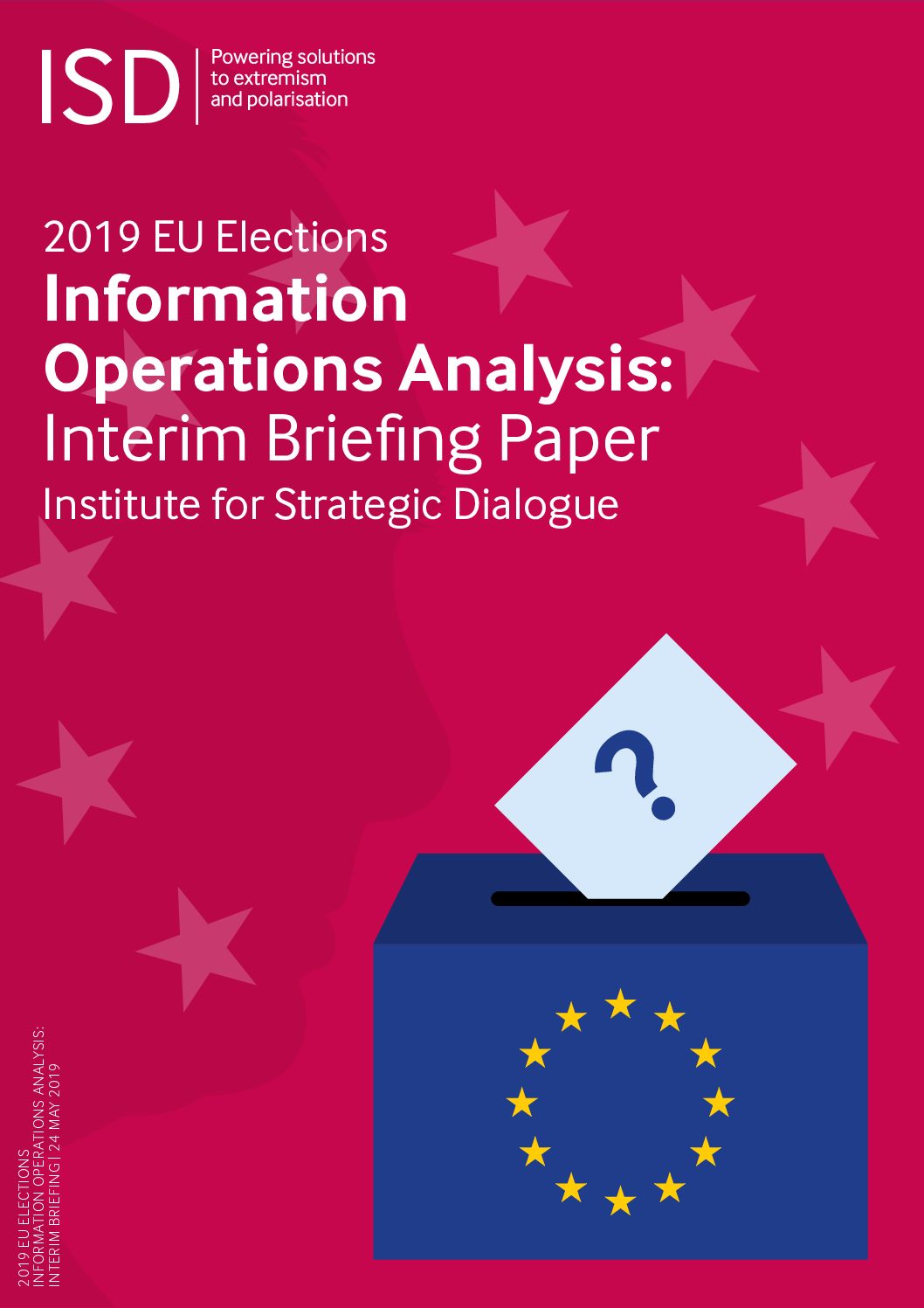Interim Briefing: Propaganda and Digital Campaigning in the EU Elections

Published: 24 May 2019
The Institute for Strategic Dialogue (ISD) has uncovered a range of digital influence campaigns targeting the European Parliamentary elections through a mix of social media mapping, undercover online reporting and media monitoring. This interim briefing paper addresses who is behind these malign influence operations and analyses the techniques they use. It also assesses the record of the tech companies in addressing these threats to electoral integrity. A full post-election analysis will be published in the coming weeks and experts at ISD can be made available for comment on the election results.
Findings include:
- The tactical adoption of the ‘Putin playbook’ by non-state actors, from far right online militias to populist parties in their use of automated influence operations
- A shift away from ‘information warfare’ to ‘narrative competition’ with the promotion of ‘culture wars’ around issues like migration, Muslims in Europe, family vs. progressive values and increasingly climate policy
- Anti-Semitism, misogyny, and racism as weapons in these elections, amplified by automated accounts
- Failings of the major tech companies in detecting and responding to such campaigns and in implementing their commitments to improved transparency around political advertising
- Common patterns across the countries in our study that go beyond the copying of the latest digital tactics and constitute a “playbook” for a full-scale campaign against constitutional democracy. You are welcome to use our data but please cite ‘The Institute for Strategic Dialogue’.
